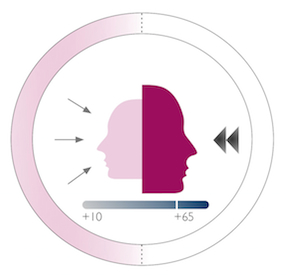
This work reports results of a lab-in-the-field experiment with people of different ages in a social dilemma. We found that the average amount of cooperativeness is independent of age except for the elderly, who cooperated more, and a behavioral transition from reciprocal, but more volatile behavior to more persistent actions towards the end of adolescence. Although all ages reacted to the cooperation received in the previous round, young teenagers mostly responded to what they saw in their neighborhood regardless of their previous actions. Decisions then became more predictable through midlife, when the act of cooperating or not was more likely to be repeated. Our results show that mechanisms such as reciprocity, which is based on reacting to previous actions, may promote cooperation in general, but its influence can be hindered by the fluctuating behavior in the case of children. https://nectunt.bifi.es/wp-content/uploads/2014/12/ncomms5362.pdf

